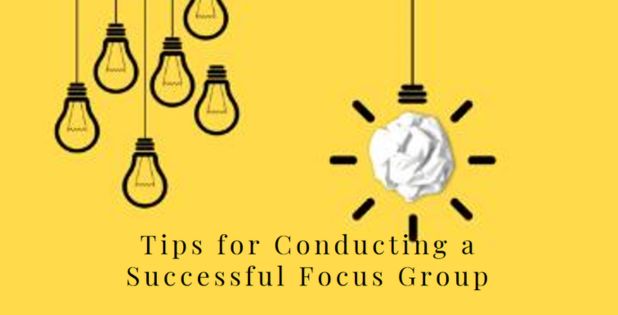6 Things You Didn’t Know About Focus Groups

Get Paid to Give Your Opinion from Home
January 26, 2024
Tips for Writing Content for a Website
February 2, 2024Have you ever wondered how companies gain valuable insights into consumer preferences and opinions?
The focus group is a robust market research technique that is recently gaining popularity.
While you may have heard of focus groups before, there are some lesser-known facts and benefits about them that can provide a fresh perspective on their importance.
A focus group is a small group of individuals who share similar characteristics or interests and are brought together to discuss specific products, services, or ideas.
Consumers can voice their opinions and influence business decision-making processes by participating in these group discussions.
This allows companies to understand better consumer perspectives, which helps them fine-tune their products or services to meet customer demands more effectively.
Understanding consumer behavior is crucial for any business striving for success in today’s competitive markets.
 By tapping into target customers’ collective experiences and preferences through focus groups, companies can gain unique insights that help inform product development strategies, marketing campaigns, and overall brand positioning.
These invaluable insider perspectives enable companies to make informed decisions rather than relying solely on internal assumptions or guesswork.
Are you intrigued by the potential benefits of focus groups?
In this article, we will delve deeper into what makes focus groups an effective market research tool and break down some key highlights you might still need to know.
 Get ready to discover real-life examples and actionable tips that will give you a whole new appreciation for the power of understanding consumer perspectives through this dynamic research method.
What Is a Focus Group?

Focus groups are a powerful marketing and product development tool, allowing companies to gain valuable insights into consumer behavior and preferences.
 These intimate gatherings unite diverse individuals to discuss their perceptions, attitudes, and experiences regarding a product or idea.
 Unlike traditional surveys or interviews, focus groups provide an interactive environment where participants can bounce ideas off each other, leading to deeper insights that may not emerge through individual feedback alone.
Six Focus Group Secrets Revealed

Here are some secrets revealed about focus groups:
1-Hidden Cameras and One-Way Mirrors:
- Purpose:Â These observation tools allow researchers to watch participants’ reactions and body language without being seen. This ensures the presence of observers does not influence responses.
- Benefits:Â Uncovers subconscious cues, non-verbal expressions, and genuine interactions that might be missed in a direct interview.
- Ethical considerations:Â Participants must be informed and consent to being observed. Cameras and mirrors should be disclosed and positioned unobtrusively.
2-The Power of Silence:
- Concept:Â After a question is asked, the moderator intentionally remains silent, allowing participants time to ponder their responses.
- Benefits:Â Encourages deeper reflection and more considered answers rather than immediate knee-jerk reactions. It can prompt more insightful and personal narratives.
- Effectiveness:Â Silence can be uncomfortable, but skilled moderators use it strategically to draw out richer conversations and avoid leading participants.
3-The Bigger the Focus Group, the Better (Myth):
- Reality:Â While larger groups may offer a broader range of perspectives, managing them can be difficult. More participants mean less time for each to share, potentially silencing quieter voices.
- Ideal size:Â Focus groups typically work best with 6-10 participants, ensuring everyone has a chance to contribute and discussions remain focused.
- Alternatives: Online focus groups can accommodate larger groups while allowing individual feedback through online surveys or breakout sessions.
4-Strangers vs. Friends in Focus Groups
- Benefits of strangers:Â Participants are less likely to conform to groupthink or avoid disagreeing with acquaintances. Openness and candidness are encouraged when personal connections are minimized.
- Exceptions:Â Studies sometimes require groups with shared experiences or demographics, where familiarity can provide deeper insights. However, care should be taken to balance diverse viewpoints within such groups.
5-Moderators and Unscripted Conversations:
- Moderators’ role:Â While they have a discussion guide, skilled moderators adapt to the group’s dynamics and allow organic conversation to flow. They probe deeper into interesting points, clarify confusing statements, and ensure everyone has a chance to speak.
- Benefits:Â Unscripted conversations reveal genuine opinions and reactions not confined to pre-set questions. Moderators guide the discussion without dictating direction, producing more authentic and valuable data.
6-Focus Groups vs. Surveys:
- Focus groups:Â Offer detailed qualitative data through in-depth discussions, uncovering motivations, emotions, and unexpected insights. Provide real-time feedback and allow researchers to probe for further clarification.
- Surveys:Â Efficient and convenient for gathering quantitative data from large populations. It helps gauge general opinions and test specific hypotheses.
- Complementary:Â Focus groups can inform survey design and provide context for quantitative results. Surveys can validate findings from focus groups and reach a wider audience.
Benefits of Focus Groups

These are the main benefits:
Gathering in-depth qualitative data:
- One of the critical benefits of focus groups is their ability to gather in-depth qualitative data.
- Unlike surveys or other quantitative research methods, focus groups allow researchers to explore participants’ thoughts and feelings on a particular topic. Moderators can uncover rich insights beyond surface-level responses by facilitating small-group discussions.
- Participants can elaborate on their opinions, share personal experiences, and provide detailed feedback.
- This depth of information can be invaluable for businesses looking to understand customer preferences or develop targeted marketing strategies.
Uncovering hidden motivations or opinions:
- Focus groups also offer a unique advantage when uncovering hidden motivations or opinions. Individuals may feel uncomfortable expressing their thoughts or divulging sensitive information in a one-on-one interview or survey.
- Â However, in a group setting where participants are encouraged to discuss their perspectives openly, people often feel more at ease sharing candid feedback.
- As conversations unfold among participants with different backgrounds and viewpoints, nuanced insights that might otherwise still need to be discovered through traditional research methods can emerge.
Encouraging open discussions among participants:
- Another benefit of focus groups is their ability to encourage open discussions among participants.
- By bringing together individuals from diverse demographics and backgrounds who share an interest in the researched topic, focus groups create an environment where ideas can flow freely without fear of judgment.
- Â The dynamic nature of these sessions fosters creativity and allows for exploring new ideas and validating or refining existing ones.
- Through this collaborative process, participants gain new perspectives, and businesses gain valuable insights by observing how consumers engage with each other’s thoughts and build upon them.
Factors Influencing Focus Group Success

Some of the factors are:
Proper Participant Recruitment:
- One of the critical factors that can significantly impact the success of a focus group is proper participant recruitment.
- The participants selected should closely resemble the target audience for which the research is being conducted.
- Â This ensures that the insights gained from the focus group accurately represent the opinions and experiences of potential customers.
- Recruiting a diverse range of participants, including individuals with different backgrounds, demographics, and perspectives, can provide valuable insights from various angles.
Skilled Moderation:
- The role of a skilled moderator must be considered when it comes to conducting an influential focus group.
- A competent moderator possesses excellent interpersonal skills and knows how to create an atmosphere where participants feel comfortable sharing their thoughts openly while maintaining control over the discussion flow.
- They should guide discussions without bias or influencing responses and have expertise in probing deeper into topics to extract meaningful insights.
Neutral Environment Setting:
- Creating a neutral environment ensures unbiased feedback during a focus group session.
- Ideally, sessions should be held in a location unfamiliar to participants to avoid any preconceived notions or biases related to specific environments affecting their responses.
- Additionally, visual cues such as branding elements or logos related to products being discussed should be minimized within the space so as not to influence participant opinions subconsciously.
Businesses can increase their chances of obtaining accurate and insightful information through focus groups by considering these factors – proper participant recruitment, skilled moderation, and a neutral environment setting.
These elements contribute significantly towards creating an open and conducive atmosphere where participants feel comfortable expressing their honest opinions.
At the same time, researchers gain valuable knowledge about consumer behavior and preferences.
Different Types of Focus Group Methods

Here are different types:
Traditional face-to-face focus groups
Traditional face-to-face focus groups have long been the go-to for gathering consumer insights.
In a conventional focus group, a facilitator leads a discussion among a small group of selected participants who provide their opinions on a particular product, service, or concept.
This method allows for real-time interaction and fosters open discussions among participants.
It lets moderators observe body language and non-verbal cues, providing valuable insights into consumers’ thoughts and emotions.
Online virtual focus groups
With the advancement of technology, online virtual focus groups have gained popularity as an efficient alternative to traditional face-to-face sessions.
 Rather than gathering participants in one physical location, these sessions occur online using video conferencing tools or specialized software platforms.
 Virtual focus groups offer several advantages, such as increased geographic reach, cost-effectiveness in travel expenses, heightened respondent anonymity leading to more honest responses, and reduced time commitments for researchers and participants.
Mini-focus group sessions
Mini-focus group sessions are shortened versions of conventional focus groups with fewer participants.
These smaller gatherings typically consist of three to five members, allowing each participant to engage more actively throughout the session.
Mini-groups can be particularly useful when seeking detailed feedback from particular demographic segments or niche markets since they facilitate deeper conversations due to more negligible group dynamics.
By employing different types of focus group methods, such as traditional face-to-face sessions, online virtual platforms, or mini-sessions tailored to specific needs, businesses can obtain comprehensive insights that align with their research objectives while leveraging the unique benefits offered by each approach.
How Businesses Can Use Focus Groups
Some of the different ways are :
Product development and refinement:
- One of the critical benefits of focus groups for businesses is their ability to gather valuable insights for product development and refinement.
- Â Companies can better understand customer needs, preferences, and expectations by bringing together a diverse group of individuals representing the target market.
- Through open discussions and interactive exercises, participants can provide feedback on existing products or prototypes, helping companies identify areas for improvement or potential new features.
- This iterative process allows businesses to create products that better meet customer demands while minimizing risks associated with launching a product without thorough research.
Marketing strategy assessments:
- Focus groups are powerful tools for assessing marketing strategies.
- By presenting different marketing campaigns or concepts to participants and soliciting their thoughts and reactions, businesses can gauge which approaches resonate most with their target audience.
- Participants may suggest how messaging could be improved or identify potential communication gaps hindering campaign effectiveness.
- These insights allow companies to refine their marketing strategies before investing significant resources in implementing them, thus improving the chances of creating impactful advertising campaigns that will engage customers.
Brand perception evaluation:
- Understanding how consumers perceive a brand is crucial for maintaining a positive image and building solid customer relationships.
- Focus groups provide an ideal platform for exploring brand perceptions by allowing participants to share their opinions openly in a non-judgmental environment.
- Companies can gain valuable insights into what aspects of the brand resonate positively with consumers and any concerns or misconceptions they may hold.
- Armed with this information, businesses can make necessary adjustments to enhance brand positioning through targeted messaging and actions that address consumer sentiment effectively.
By leveraging focus groups within these various contexts, businesses stand to benefit from fresh perspectives on product development, refining marketing strategies based on real-time feedback from consumers’ voices directly rather than relying solely on assumptions restricted within internal teams.
Overall, focus groups provide a unique and powerful methodology for companies to gather in-depth insights and perspectives from their intended target audience, which can ultimately lead to more informed business decisions.
Tips for Running Effective Focus Groups

Setting clear objectives:
- One of the keys to running a successful focus group is setting clear objectives.
- Before conducting a focus group, knowing what you hope to achieve and what specific insights or feedback you’re looking for from participants is essential.
- This can help guide your discussions and ensure that you gather relevant and valuable information.
- For example, suppose you are developing a new product. Your objective might be understanding consumer needs and preferences regarding specific features or pricing options.
- By setting clear objectives, you can create focused questions that elicit insightful responses from participants.
Establishing rapport with participants:
- Building rapport with focus group participants is essential in creating an open and comfortable atmosphere for discussion.
- It helps foster trust between the moderator and participants, encouraging them to share their opinions more freely.
- One way to establish rapport is by starting the session with introductions where each participant briefly shares something about themselves unrelated to the research topic.
- This breaks the ice and lets everyone get acquainted before diving into the main discussion.
- Â Additionally, active listening skills such as maintaining eye contact, nodding attentively, and acknowledging participant contributions help build trust and show respect for their perspectives.
Creating an inclusive atmosphere:
- An inclusive atmosphere in focus groups ensures that all voices feel heard and respected during discussions regardless of their background or personal characteristics.
- To promote inclusivity, moderators should encourage equal participation among all participants by managing any dominating personalities gently but effectively so that quieter individuals can speak up, too.
- Creating ground rules at the beginning of each session can also set expectations around respectful communication practices, like allowing others ample time to express their thoughts without interruption.
- Additionally, brainstorming or round-robin sessions encourage collaboration rather than competition among group members while ensuring that diverse ideas are considered.
By following these tips—setting clear objectives for your focus groups, establishing rapport with participants, and creating an inclusive environment—you can run influential focus groups that yield valuable insights and help inform your business decisions.
Conclusion:
Now that you understand focus groups better, it’s time to recap the key takeaways and encourage you to consider utilizing this powerful market research tool.
1. Focus groups provide valuable insights: By bringing together a diverse group of participants, focus groups allow businesses to gain an in-depth understanding of consumer preferences, motivations, and behaviors. This qualitative data can aid in developing targeted marketing strategies and product improvements.
2. The power of group dynamics: Group discussions within focus groups can lead to rich exchanges and uncover insights that may not be apparent through other research methods. Participants’ interactions often reveal shared experiences, hidden opinions, or innovative ideas that would otherwise go unnoticed.
3. Real-time feedback for rapid decision-making: Unlike surveys or individual interviews, which may take longer to analyze and interpret, focus groups provide immediate feedback on specific concepts or prototypes. This real-time information enables businesses to make quicker decisions in a dynamic market environment.
Incorporating focus groups into your market research toolkit can significantly improve your understanding of consumer behavior and enhance your business strategies.
 So why wait? Consider incorporating this valuable technique into your next research project for actionable insights to give you a competitive edge in the marketplace!


